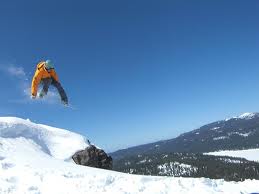 The Doctor measured her BP at 120/60. “Perfect pressure,†he said to his patient. Like a proud artist showing off his painting, the doctor boasted that the three medications he prescribed for high BP were working well. So why did this 84 year-old lady die just a few weeks later?
The Doctor measured her BP at 120/60. “Perfect pressure,†he said to his patient. Like a proud artist showing off his painting, the doctor boasted that the three medications he prescribed for high BP were working well. So why did this 84 year-old lady die just a few weeks later?
Surely high blood pressure is dangerous, but LOW blood pressure can be dangerous as well – particularly in older adults and the frail elderly. As we age arteries become stiffer, causing the top pressure (systolic) number to rise. Lowering that high systolic pressure does reduce strokes and heart problems. But a too-low blood pressure leads to increased death, side effects and heart attacks!
Your doctor will likely tell you that an ideal blood pressure is about 110/70 – but studies that came up with this number had few if any older folks beyond 70 years of age. The studies done in the 60 to 80 year-old age group did show benefit in treating high blood pressure but those pressures started at 160 to 220 mm! How far down did they reduce blood pressure to? 140 to 160mm — and their health improved in this pressure range. Not 110 or 120! In fact, researchers have found that health gets worth and death increases when the blood pressure goes too low in the elderly.
What’s more, the side effects of overly aggressive blood pressure treatment can be significant: dizziness, falls and weakness are just a few of many drains on well being.
Our lady with the “perfect blood pressure” got out of bed one night and became dizzy and weak. She fell and broke her hip then died soon after her hip surgery. She probably experienced a drop in pressure upon standing, then became dizzy and fell over. The reduced diastolic (bottom) blood pressure contributed to her suffering a heart attack the day she broke her hip. A cascade of problems came about from overtreatment of blood pressure in the elderly. Bear in mind that the diastolic or bottom blood pressure is what supplies blood to the heart-feeding arteries. Too low pressure causes insufficient blood flow to feed the heart, similar to how low water pressure causes inadequate shower power.
A Few Tips
- First line treatment for older adults with a high systolic (top number) blood pressure: limit alcohol, quit smoking, lose weight if overweight, exercise and reduce salt intake.
- Careful analysis of scientific evidence shows those over age 60 do better if blood pressure is reduced to 140 to 160mm systolic and not 110 or 120, according to Dr. John Morley, Director of Geriatrics at Saint Louis University.
- Those elders who have risk factors for heart disease such as diabetes, previous heart attack, bad cholesterol profile and smoking will benefit most from lowering a high systolic (top number) blood pressure.
- The bottom blood pressure number (diastolic) should not be reduced below 70mm if possible. Older adults do worse when the bottom number pressure (diastolic) falls below 70mm.
- Blood pressure treatment in frail elders is different than in healthy adults. The elderly are more sensitive to medications and susceptible to drug interactions and side effects. Blood pressure should always be measured while sitting AND standing to be sure no large pressure drop occurs — which can cause weakness, dizziness and falls.
- Paradoxically, the elderly may need more salt (and fluids) if blood pressure is too low. The reasons:
a) Increase blood pressure to safer levels
b) Prevent a drop in blood pressure when standing up (orthostatic hypotension) which can cause falls
c) Add flavor to bland food so frail elders will eat more. Weight loss may lower blood pressure too far down. Adding spices can enhance food flavor too.
d) Reduced food and fluid intake or dehydration from vomiting, diarrhea or diuretics may lead to low blood pressure. Reduced blood pressure medication doses can help as well.
e) Salt can help to eliminate the fatigue, weakness and dizziness caused by plummeting blood pressure.
Sources
- Aung K. and Htay T. Isolated Systolic Hypertension in the Elderly. 2003 http://www.medscape.com/viewarticle/462079_6
- Beckett, NS et al. Treatment of Hypertension in Patients 80 Years of Age or Older. NEJM May 1, 2008. Volume 358:1887-1898.
- Boshuizen, H et al. Blood pressure and mortality in elderly people aged 85Â and older: community based study. BMJ 1998;316:1780-1784.
- Ferrucci L, Furberg CD, Penninx BW, et al. Treatment of isolated systolic hypertension is most effective in older patients with high-risk profile. Circulation. 2001;104:1923-1926.
- Staessen JA, Gasowski J, Wang JG, et al. Risks of untreated and treated isolated systolic hypertension in the elderly: meta-analysis of outcome trials. Lancet. 2000;355:865-872.
- Langer RD, Ganiats TG, Barrett-Connor E. Paradoxical survival of elderly man with high blood pressure. BMJ. 1989;298: 1356-1358.
